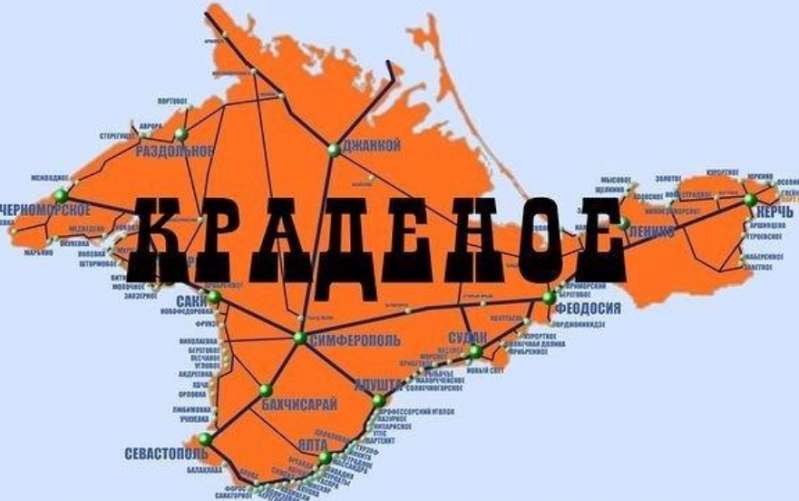'Nationalized' Ukrainian property sold in occupied Crimea to finance Russia's war against Ukraine

The Russian-installed occupation ‘authorities’ have begun auctioning plundered Ukrainian residential and commercial buildings, while calling this ‘nationalization’. In a particularly cynical touch, Russia’s so-called Crimean leader, Sergei Aksyonov earlier claimed that the money raised from such entirely illegal ‘sales’ will go to fund Russia’s war of aggression against Ukraine.
Vladimir Konstantinov, speaker of the occupation ‘parliament’, reported on 16 September that eight so-called ‘auctions’ had already been held in occupied Crimea, with the property ‘sold’ worth over 815 million roubles (almost 8 million euros). Typically, Konstantinov tried to pass this off as the sale of “nationalized property of Ukrainian oligarchs”, including a villa belonging to President Volodymyr Zelensky and his wife. In fact, Russia’s illegal expropriation of Ukrainian property in Crimea includes that belonging to ordinary individuals and legal entities. On 24 May this year, Refat Chubarov, head of the Mejlis, or representative assembly, of the Crimean Tatar people reported that the Russian occupation regime had ‘issued a decision to nationalize’ the building in Simferopol which, until September 2014, served as the headquarters of the Mejlis in Crimea, as well as housing the editorial office of the Mejlis’ official newspaper, Avdet. The Mejlis were forcibly evicted in September 2014 as part of the vengeance measures against individual Mejlis leaders and the Mejlis itself for their unwavering opposition to Russia’s occupation of Ukrainian Crimea. Since 2017, Russia has been flouting a binding order from the UN’s International Court of Justice to withdraw its ban on the Mejlis. Russia’s illegal ban is, however, no excuse for this brazen expropriation as the building itself belongs to the Crimea Foundation, a charitable organization.
Konstantinov first announced the occupation regime’s supposed ‘nationalization’ of around 700 properties in early February this year, claiming these to be the property “of oligarchs, politicians and businessmen”. It was then that Aksyonov asserted that the proceeds made from the resulting auctions would be used towards Russia’s war against Ukraine (which he, following the Kremlin, called ‘the special military operation’).
Russia began its so-called ‘nationalization’ of Ukrainian state property immediately after its invasion of Crimea. This has included cases of outright plunder, such as the ‘sale’ of the world-renowned Massandra Winery to a subsidiary of the Rossiya Bank owned by Yury Kovalchuk, a crony of Russian president Vladimir Putin.
On 24 March 2020, Putin issued an illegal decree extending Russia’s list of ‘coastal territories’ on which ‘foreign nationals, stateless persons and foreign legal entities” cannot own land to cover around 80% of occupied Crimea, except for three regions without access to the Black Sea. Stripped of such cynical verbiage, this simply meant that the Ukrainian owners of property on a peninsula which remains internationally recognized as Ukrainian territory were being called ‘foreign nationals’ in order to deny them their right to own their own property. This is in violation of Article 53 of the Geneva Convention on the Protection of Civilians which expressly prohibits the destruction or expropriation of property by occupying powers. The owners were given a year in which to either take Russian citizenship or try to sell the property, in order to avoid it being forcibly sold at a huge loss.
By April 2023, almost six thousand owners of land had been thus stripped of their rights. The number by now is likely to be higher.
Kyiv has already stated clearly that such transactions have no legal validity and no legal consequences. Those Russians believing that they have ‘bought’ such plundered property should, therefore, beware.





